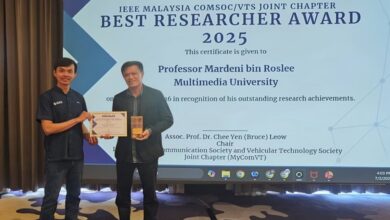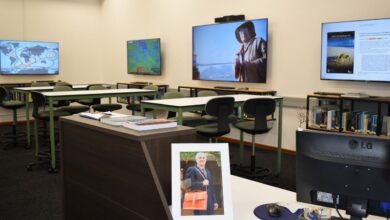EdUHK Research on How Vocabulary Breadth and Depth Influence Bilingual Reading Comprehension: Direct and Indirect Pathways

Numerous studies highlight vocabulary as a critical predictor determining word and text reading comprehension in monolingual and bilingual children, but when measuring vocabulary, most studies focus on either breadth or depth, or conflate the two, which devalues the unique role each dimension plays in reading comprehension.
A study by Dr Tong Xiuhong, Assistant Professor at the Department of Psychology, The Education University of Hong Kong, examined the links between breadth and depth of vocabulary knowledge and reading comprehension, and the mediating impact of word reading on these links within and across first language (L1) Chinese and second language (L2) English among 391 Chinese-English bilingual second graders in Hong Kong mainstream primary schools where Chinese is the medium of instruction and English is taught as L2
Parents and caregivers filled out a questionnaire on family demographics, children’s language background, and home language use, with four questions: the language the child prefers (1) when speaking with parents, (2) when watching TV/videos, and (3) when reading books and magazines; and (4) the main language parents use to speak with their children.
To measure vocabulary breadth and depth, parallel measures of L1 Chinese and L2 English vocabulary were administered. For L1, Chinese receptive vocabulary breadth, and expressive vocabulary breadth and depth were measured. For L2, English receptive vocabulary breadth and expressive vocabulary depth were measured.
To measure reading, parallel measures of L1 Chinese and L2 English word reading and reading comprehension were administered to all participants.
Control measures included assessing children’s nonverbal reasoning ability, L1 Chinese phonological awareness and L2 English phonological awareness.
The study demonstrated the occurrence of a cross-language association between L1 Chinese vocabulary and L2 English reading comprehension, and revealed different ways in which L1 receptive vocabulary breadth and depth contributed to L2 reading comprehension.
The findings extend contemporary models of reading comprehension to include bilingual readers and suggest that one theoretical framework assuming either a direct or indirect effect on vocabulary cannot adequately explain the complexity and specificity of the relation between oral vocabulary and reading comprehension.
Moreover, by highlighting the mediating role of word reading in the link between vocabulary and reading comprehension within and across languages, the findings reinforce the non-selective view of the lexical access of bilinguals and underscore the interaction between L1 and L2 lexicons in reading comprehension.
The findings have educational implications for biliteracy practices. First, since quantity and quality of vocabulary affect L1 Chinese and L2 English reading comprehension, biliteracy programs may consider targeting both to increase L1 and L2 lexical richness. Second, the facilitative effect of L1 Chinese vocabulary on L2 English reading comprehension suggests that biliteracy teaching and intervention programs should utilise L1 language skills to scaffold the acquisition of L2 vocabulary and reading comprehension.
Past studies have shown that providing bilingual versions or side-by-side translations of texts can improve bilingual children’s literacy development. Thus, when reading and writing, bilingual students should be encouraged to use their L1 and L2 language repertoires to think, reason, imagine, and organise ideas.
The study was conducted together with Dr Shelly Tong Xiuli, Associate Professor in the Department of Human Communication, Development, and Information Sciences at The University of Hong Kong.
To learn more about the study, please click here.




